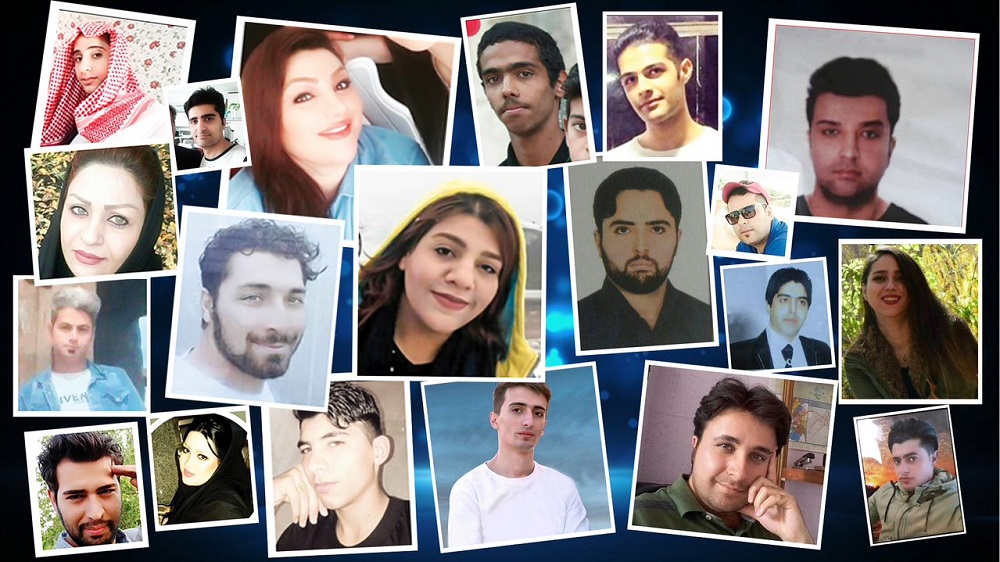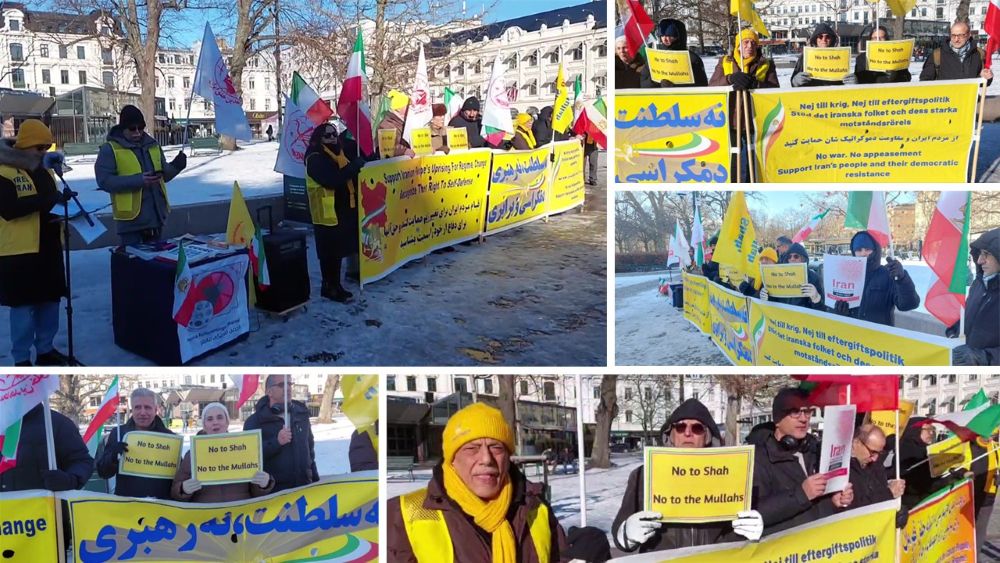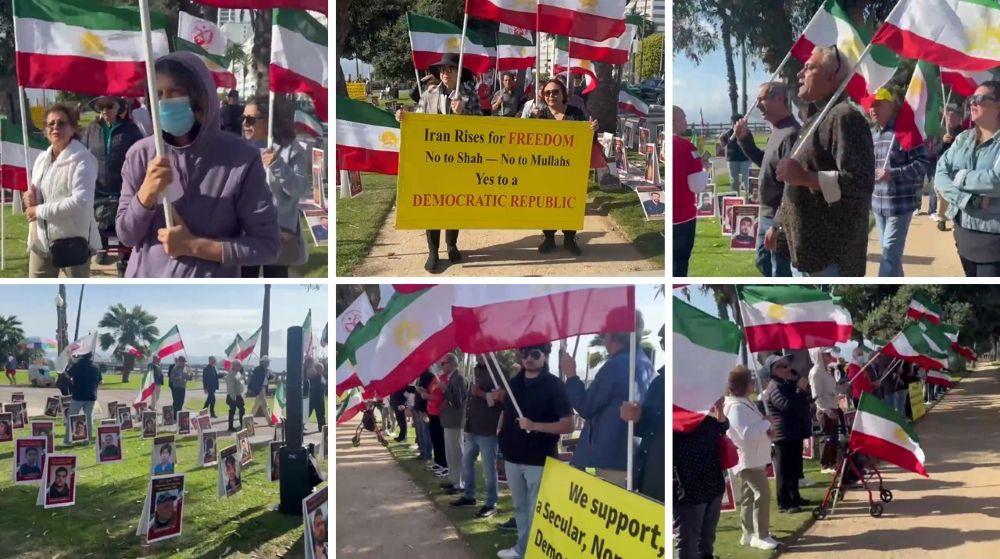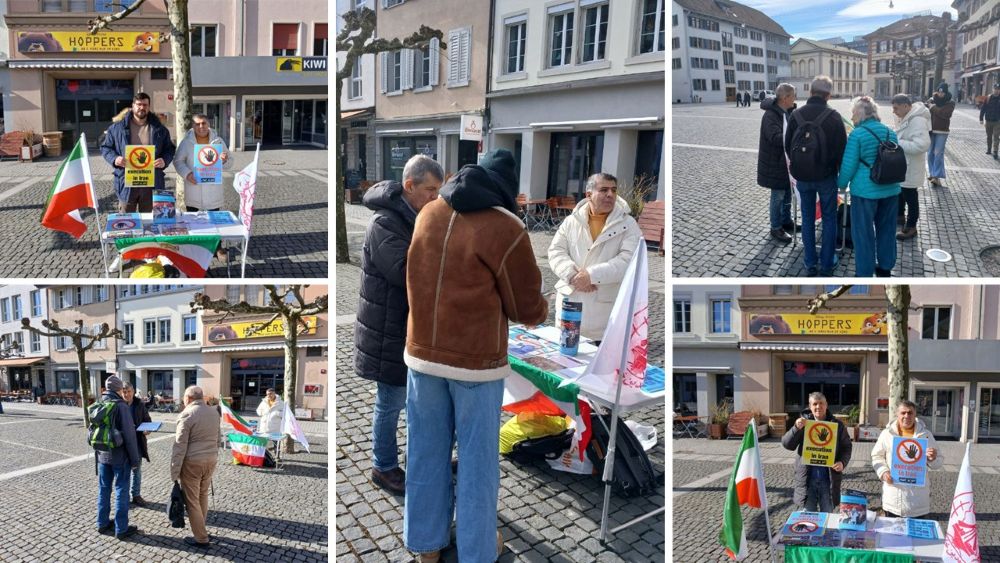
On November 7, 2021, the Secretariat of the National Council of Resistance of Iran(NCRI) issued a statement announcing the names of 29 other martyrs of the November 2019 uprising prepared by the People’s Mojahedin Organization of Iran(PMOI/MEK).
The text of the statement is as follows:
On the eve of the second anniversary of the nationwide uprising in November 2019, the People’s Mojahedin Organization of Iran (PMOI/MEK) today announced the names of 29 more martyrs of this uprising. These fallen heroes were martyred in Tehran, Karaj, Mallard, Shahriar, Qods, Nasimshahr, Isfahan, Kermanshah, Shiraz, Mahshahr, Andimeshk, Eslamshahr, and Meshkinshahr. Previously, the MEK had published the names of 828 martyrs. Today’s announcement brings to 857 the names of those murdered by the regime during the November uprising.
On December 15, 2019, the Iranian Resistance announced that more than 1,500 protesters had been martyred by the Revolutionary Guards. In recent months, researchers and experts had estimated the number of martyrs of the uprising up to three times this number.
Khamenei, who had ordered the shooting of protesters at the beginning of the uprising, made the criminal order public on November 17 and called on the Revolutionary Guards and the repressive forces to “carry out their responsibilities firmly.” He had said: “Who is behind setting things on fire, destruction, clashes, and fomenting insecurity? They must understand, and people do understand. They must distance themselves from these acts. This is my directive, and the country’s officials must act consistently with their duties.”
On the same day, on November 17, amid the uprising, Ebrahim Raisi, henchman of the 1988 massacre, the then-judiciary chief, issued the following directive to the regime’s prosecutors, among the most criminal regime functionaries: “Act decisively in collaboration with the State Security Force, and security services against any aggression by mobs, those affiliated with counter-revolutionary currents, and infiltrators, who engage in sabotage at the behest of enemies and target the people and society’s security.”
Fearing the consequences of this great crime against humanity, the ruling religious fascism in Iran tries to hide its dimensions and refuses to release the number and names of the martyrs and, in many cases, announce their burial places to their families. For months, Hassan Rouhani, his spokesman Ali Rabi’i, Interior Minister Abdolreza Rahmani Fazli, the regime chief coroner, and other officials at various levels deferred releasing the names of the martyrs to each other in the hope that the issue would be forgotten.
“The [casualty] figures are in possession of coroner’s office … they can announce them,” Rouhani said on February 16, 2020. The next day, the regime coroner said, “The government must announce the statistics. Ask the interior minister.” Rabi’i claimed, “The figures will be announced in the next few days by one of the responsible agencies.” Rahmani Fazli said May 31, “They claimed 10,000, 8,000, 7,000, 6,000 or 2,000 had died. The figure will be announced one of these days. It is no such figure.” The fatality figures were never made public.
Mrs. Maryam Rajavi, President-elect of the National Council of Resistance of Iran (NCRI), hailed the martyrs of the November Uprising and said that the crimes of the clerical regime and its leaders will never be forgotten. They cannot escape the consequences of the massacre of political prisoners and the genocide perpetrated against the People’s Mojahedin Organization of Iran (PMOI/MEK). Neither can day erase the traces of crime against humanity in November 2019. The leaders of this regime must be brought to justice for four decades of crimes against humanity and genocide. The silence and inaction by the international community in the face of the massacre of 30,000 political prisoners in 1988, which was perpetrated among others by Khamenei, Ebrahim Raisi, and the Judiciary Chief Gholam Hossein Mohseni Eje’i, led to the perpetuation of atrocities by them until November 1998 and continues today. Mrs. Rajavi called for the referral of the dossier on human rights abuses in Iran, particularly the massacres of 1988 and 2019, to the UN Security Council and the prosecution of the regime’s leaders in an international tribunal.
As we near the 2nd anniv. of the Nov. 2019 nationwide uprising in #Iran, the PMOI/MEK published the names of another 29 victims of its crackdown. The clerical leaders must face justice for 4decades of crimes against humanity and genocide.https://t.co/OPxLuY6drV
— Maryam Rajavi (@Maryam_Rajavi) November 7, 2021
The names of the 29 martyrs of the November 1998 uprising:
1. Kermanshah – Reza Omidi Yarijani
2. Noorabad – Ali Momeni
3. Shiraz (Sadra) – Ali Dabiri
4. Shiraz – Yadollah Haji Taripour
5. Shiraz – Mohammad Reza Zarei
6. Mahshahr – Ali Rahmani
7. Mahshahr – Taher Achrash
8. Andimeshk – Moin Moslempour
9. Mallard – Amir Hossein Zarezadeh
10. Shahriar – Alireza Nikjeh
11. Shahr-e-Quds – Reza Hassan Nia
12. Shahr-e-Quds – Hamzeh Ali Nemati
13. Shahr-e-Quds – Hossein Keshavarz Afshar
14. Tehran – Omid Saedi Rad
15. Tehran – Mohsen Iranshahi
16. Tehran – Mehdi Ahmadi
17. Tehran – Hadi Mohammadi
18. Nasim Shahr – Ali Aghaei
19. Eslamshahr – Mehdi Salmanzadeh
20. Karaj – Milad Por-rang
21. Karaj-Marlik – Reza Tari Verdi
22. Karaj – Ali Mohammad Aghapour
23. Karaj – Ebrahim Mehdipour
24. Fardis of Karaj – Asghar Lashgari
25. Najafabad – Abdul Reza Izadi
26. Isfahan – Mehdi Farahani
27. Isfahan – Saeed Faridani
28. Isfahan – Mohammad Hooreh’i
29. Meshkin Shahr – Ashkan Khumraei



